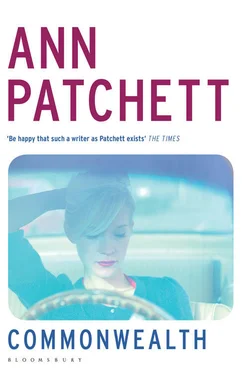Albie held the baby while Jeanette heated up the dinner Bintou had left for them. Fodé set the table and opened a bottle of wine, telling them the story of his day. “Americans love the idea of vaccinating Africans. What could be nicer than a photograph of dusty little Nigerian children lined up for inoculation on the front page of the New York Times ? But for their own children the mothers of New York City find vaccinations passé. They say the vaccination is not sufficiently natural, that it could possibly cause something worse than it could prevent. I have spent the day trying to convince women with college educations to vaccinate their children and they argued with me. I must go to medical school. No one will listen to me if I am not a medical doctor.”
“I’ll listen to you,” Jeanette said. “Don’t go to medical school.”
“One woman told me she did not believe in epidemiology.” He covered his face with his hands. “It is appalling.”
“Measles are no longer applicable in New York.” Jeanette patted his shoulder. “We’ve transcended measles.”
Jeanette washed the salad greens. Fodé wrapped the sliced bread in tinfoil and put it in the oven. They worked around one another in the tiny space, each one stepping out of the other’s way.
“Tell me about your day instead,” he said to her. “Let’s think of something better.”
“You want to think about MRI demonstrations in hospital basements?”
Fodé stopped for a moment, then smiled and shook his head. “No, no.” He turned then to his brother-in-law, so pleased to have another opportunity. “What I meant to say is — Albie, please, tell us about your day.”
Albie shifted the weight of his nephew in his arms. He spoke to the baby. “I was stopped by security guards in four buildings today. I showed my ID, was told I could go up, and then I was stopped by a second guard at the elevator who told me I couldn’t go up.”
Fodé nodded with appreciation. “This is most impressive for a white man.”
“And I was almost hit by the M16 bus.”
“Stop it,” Jeanette said, putting a bowl of salad in the middle of the table. “No more about your day either.”
“That leaves us with Dayo,” Albie said.
Fodé took the baby from his arms. “Dayo. There is no one I would rather hear from. My son, tell us, was it a beautiful day to be alive?”
“Uncle,” Dayo said, and held out his arms to go back.
Albie, who had lived close to the edge for so long, and at times had strayed past the edge, looked out the window to see the lights shining down from all those countless Brooklyn apartments. He wondered if this was what people were doing — were they making dinners with their family, holding babies, recounting days? Was this what life was like for them?
Albie’s bicycle was an amalgamation of so many different replacement parts it could no longer rightfully be called a Schwinn. It was his job to deliver small packages and notarized insurance forms and promising manuscripts. Sometimes it was a contract and he was to wait for a signature before riding it back to where it had come from. Sometimes he was asked to sign as a witness. New York was the land of limitless deliveries. There was always someone who had something that needed to be someplace else, and so the day went on until he stopped it. He cut in front of buses and between taxis, startled drivers from Connecticut like the Goddamn Boy on a Bike he had once been. The tourists saw him bearing down on them and hung to the curb. When he arrived at his destination, he lifted his bike onto his shoulder like it was his younger brother and carried it with him into the elevator. While Albie was three inches taller than his father, he was only very tall and not extraordinarily tall. He was, however, extraordinarily thin, and the thinness gave him the illusion of additional height. Often the receptionists would blanch ever so slightly to see Albie approaching their desk with a manila envelope in his hand, the bicycle wearing a dent into his acromion. He was a living skeleton with his black tattoos and his thick black braid, like Death himself had come for them, ready to ride them out on his handlebars.
“You should consider upping your caloric intake,” Jeanette said when he came limping back into the apartment in the evenings.
“Occupational hazard,” he said. True and not true — he’d seen some fat messengers in his day.
Albie made money, and after a couple of months of thinking he would leave tomorrow or the next day, he started giving half of it to Jeanette for rent and coffee and wine and Dayo’s education or her education. The other half he changed into hundreds and folded into the zipper compartment of his duffel. He had tried to give the money to Fodé first but Fodé wouldn’t even look at it. The next day he waited for his sister at the subway station and gave it to her instead. Jeanette nodded and pushed the bills into her pocket.
“Don’t you think we should go into therapy someday?” she said as they went past the yogurt shop, the shoe-repair place, the Korean markets with their buckets of daffodils out front. Maybe she thought he was giving her money for therapy. “Once we were on our feet psychologically we could patch Mom and Holly in on conference calls so they could be in therapy with us.” Albie had told her he wasn’t ready to call their mother yet, but Jeanette had called her. She called Teresa most days from work and told her everything.
“What about Dad?” Albie said. The street was crowded and he put his arm around her shoulder while they walked. He didn’t know why. It wasn’t anything he’d done before but it was nice. They had a similar gait.
“I bet Dad’s been in therapy for years. I bet he’s finished with therapy by now.”
“Without ever conferencing us in?”
Jeanette shook her head. “It wouldn’t have crossed his mind.”
Albie had come to Brooklyn to get on his feet, and in certain respects he was on them now, except for the drinking, which he made possible by taking in limited amounts of alcohol with rigorous consistency, and the speedballs, which got him through the latter half of his days. Smoking didn’t count. Bad habits were all a matter of perspective, and as long as the present was viewed through the lens of the past, anyone would say he was doing a spectacular job. He had saved enough money to find a place of his own but he never looked. Somehow, despite the nearly comical lack of space, Fodé and Jeanette made him feel like he should never go. Dayo wanted to hold on to his legs the minute he walked in the door, to stand with both of his feet on Albie’s foot and wrap his arms around the muscled calf to hold himself up. “ Uncle” was his best word, perfectly enunciated. He could not say it enough. Albie liked the couch that was too short for him. He liked the days he would ride all the way home in the afternoon and tell Bintou she could take a few hours off while he took the baby to the park. He liked the feeling he didn’t have a name for when he saw Fodé on the front steps waiting for him late at night with a beer. He would leave them eventually, but until he did he would bring home cold sesame noodles from Chinatown, he would fold up his blankets every morning and put them behind the couch, he would find reasons to stay out late several nights a week in order to ensure their privacy, and when he came home very late, he would turn his key in the lock so quietly that he would never wake them.
“Where were you last night?” Jeanette would ask, and Albie would think, You missed me.
At first Albie went to bars and to movies on his nights out but quickly saw that bars and movies in New York could eat a day’s wages. He stayed at the library until the library closed, and then went to the Christian Science Reading Room until the Christian Science Reading Room closed, and then, depending on the quality of the book he was reading and the amount of speed still hopping him up, he went to the Laundromat that never closed and sat amid the dead moths and thumping dryers and the pervasive smell of dryer sheets. Because he had gotten to know the receptionists at the publishing houses where he delivered envelopes and asked them what they were reading, he always had books. There was no other place Albie delivered to or picked up from that ever gave him gifts, but the receptionists at publishing houses didn’t mind giving a copy of a book to a bicycle messenger, even the bicycle messenger of death.
Читать дальше
